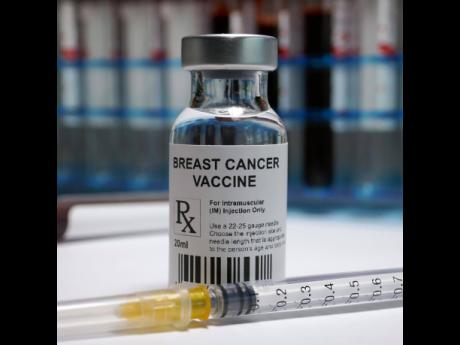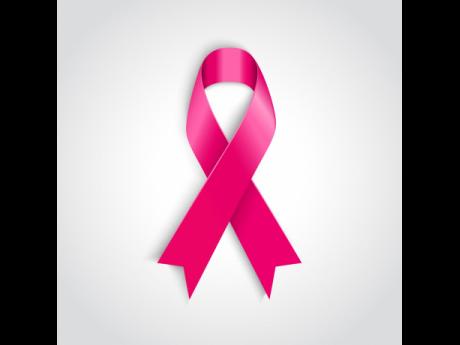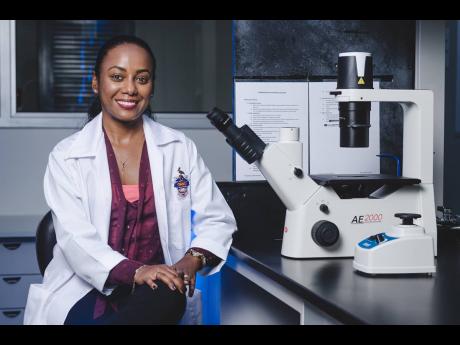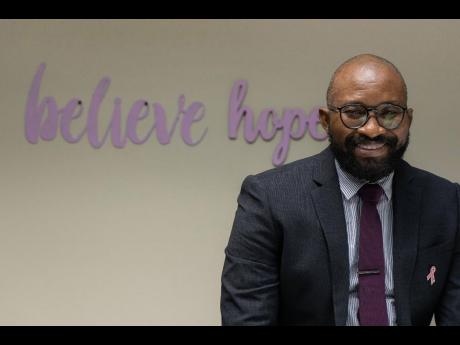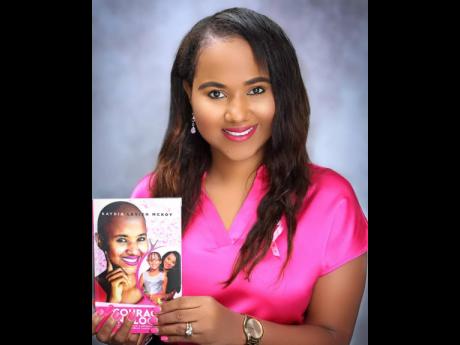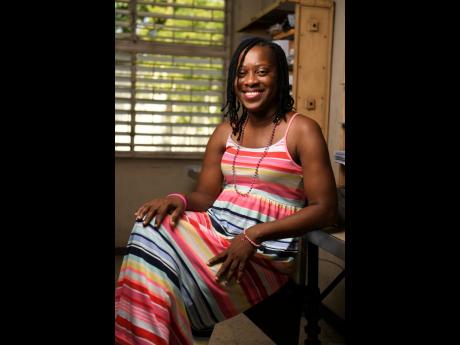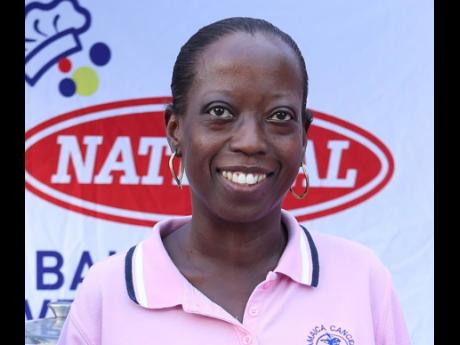Breast cancer hope
- Vaccine success could revolutionise treatment, stakeholders believe - Local researchers studying black cell lines to aid global research
Local stakeholders are expressing hope in light of news out of the United States that human trials of a breast cancer vaccine are producing desirable results.
Experts believe the drug could revolutionise breast cancer treatment and have a significant impact on black women. As the trials take place in the United States, a team at The University of the West Indies, Mona (UWI) is conducting research into black cell lines that can aid global cancer research for black people.
Researchers at Cleveland Clinic Lerner Research Institute in Ohio, United States, developed a vaccine aimed at preventing the recurrence of triple-negative breast cancer, one of the most aggressive forms of the disease that makes up 10-15 per cent of all breast cancers, which is the most common type in black women.
This type of breast cancer also has a high rate of recurrence, with over 40 per cent of triple negative breast cancer survivors getting the disease again in the next five years.
The human trials began two years ago and are ongoing, with 16 survivors of triple negative breast cancer being immunised. The objective of the experiment is to determine the maximum tolerated dose, dose limiting toxicities and the lowest immunologic dose of the participants.
At least one participant in the study is reporting that the vaccine has changed her life.
The vaccine, which is the result of 20 years of research and laboratory studies by the late immunologist Dr Vincent Tuohy, works by stimulating the immune system to fight the participant’s cancer, in a way similar to how the immune system fights off an infection after a vaccination for that contagion.
However, it remains experimental because it is yet to be approved by the US Food and Drug Administration (FDA).
‘I AM EXCITED ABOUT IT!’
Knowing that researchers have got to the stage of a vaccine and human trials have given 34-year-old cancer survivor Kadia Levine immense joy.
“It is welcoming. I am excited about it!” she shared with The Sunday Gleaner.
Levine was diagnosed with stage two oestrogen positive breast cancer in 2020, and is currently in remission. However, the mother of one said she still has to take medication daily and has had to adapt to the changes in her body caused by the multiple surgeries, chemotherapy and radiation she underwent for her treatment.
“Emotionally, it’s a bit hard, learning to cope with the new me, to understand my body because I am a totally different person inside after going through all of that,” she shared.
Marlene Dawson had a similar diagnosis 11 years ago, but even after a double mastectomy, and being on medication to suppress her oestrogen levels for the last 10 years, she still lives with the fear of the cancer returning.
Like Levine, she is optimistic at the prospect of a vaccine.
“It would really help. That would be good news, ‘cause bwoy, mi a tell yuh, dem always seh that there is no cure, there is no cure. But anything that can help for me, it would be okay. That would be good,” the 53-year-old said.
CONCERN FOR BLACK WOMEN
Noting that it is “still early days”, Dr Simone Badal McCreath, Anti-Cancer Research Jamaica Foundation chair and lecturer in the Department of Basic Medical Sciences at UWI’s Faculty of Medical Sciences Teaching and Research, believes the vaccine, if successful, could revolutionise breast cancer treatment.
Pointing out that black women are typically more prone to develop the type of cancer the vaccine is targeting, she said it would be interesting to know the ethnicities of the participants in the human trials.
“Because if it is once again biased to white women, then it causes us as black women who have the disease to once again be at a disadvantage; in that, if this drug actually works, will we benefit equally from the drug as the women who they are enrolling in the trials are benefiting,” Badal McCreath noted to The Sunday Gleaner.
A recurring concern of cancer research in general, she contends, is how they are typically skewed for white people, “and the treatments that are developed tend to be more effective in white women who have the disease than black women who have the disease”.
BLACK CELL LINES RESEARCH
Badal McCreath and her team are currently researching the development of black cell lines that can be used globally in cancer research.
A cell line is a cluster of cells that continuously multiply on their own outside of the human body from which they originated. These are used by scientists in their research to investigate how cells function in humans. They are also utilised in vaccine production, testing drug metabolism and cytotoxicity, antibody production, study of gene function, generation of artificial tissues, among other things.
Badal McCreath said she has already developed cell lines for prostate cancer, and is in the process of commercialising the line.
Additionally, she has also developed three cell lines for breast cancer, the research for which she intends to publish by the end of the year.
“We’re looking at it from a pre-clinical level, where we want to ensure that we are filling the gap. We want to ensure that we have equal representation of our black breast cancer cell lines on the global front so researchers across the globe can have access to black breast cancer cell lines when they are conducting their work,” she said.
Badal McCreath added, “What I found from the literature is that the cell line that we typically come in contact with as researchers, more than 90 per cent of these are Caucasian cell lines. So if we say we want to develop a drug here in Jamaica to treat breast cancer, chances are when we go on the cell line supplier database, we are going to be getting or buying or sourcing a white cell line.”
VACCINE IS PROMISING
For Dr Jason Copeland, head of the breast oncology unit at the Kingston Public Hospital, the vaccine is promising as it is the first time that such a research has got to this phase.
But with “no results to look at” just yet, he is cautioning that even if the human trials are successful, it will take some time before it is available to the wider population.
“If you look at breast cancer, for example, each year you have over 200 million patients worldwide being diagnosed with breast cancer, and for you to have a vaccine and establish its effectiveness, you’re going to have to expose a lot of patients to it,” Copeland explained to The Sunday Gleaner.
He said countries like Jamaica, which recorded more than 1,200 cases of breast cancer three years ago, an increase from previous years, would benefit greatly from such a vaccine.
Although happy about the potential of having a vaccine as an option for the treatment of breast cancer, Shullian Brown, public relations officer for the Jamaica Cancer Society, is concerned about the many “unknowns”.
But she declared, “If it is geared towards helping women, and potentially coming with a cure for breast cancer, certainly we’ll support that. There is hope on the horizon.”

